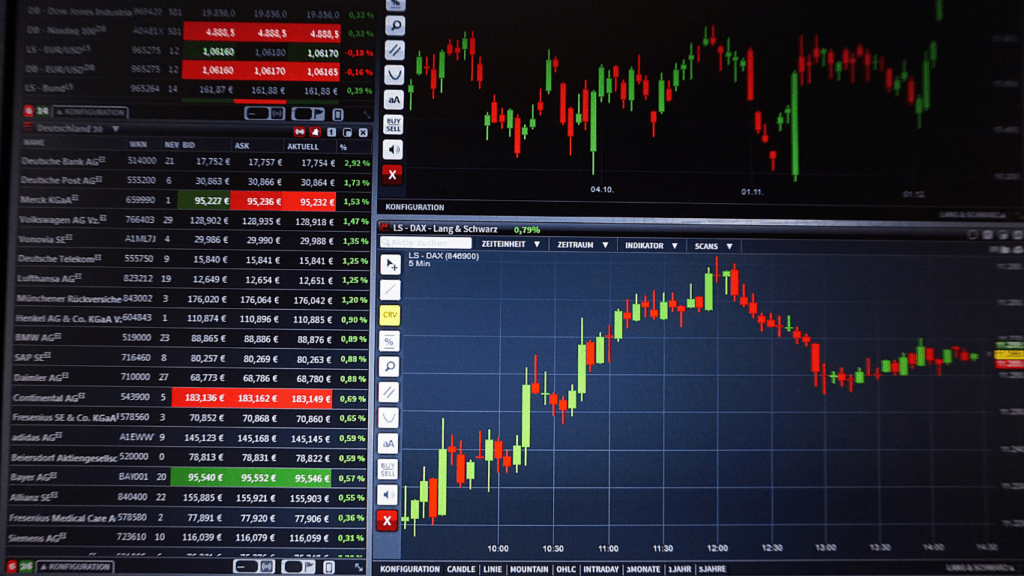In today’s interconnected world, global events have a profound impact on various aspects of our lives, including the wheel betting markets. As an avid observer of market trends, I’ve witnessed firsthand how geopolitical shifts, economic developments, and even natural disasters can sway the dynamics of wheel betting markets around the globe.
From Brexit uncertainties to trade wars and pandemics, each major global event sends ripples through the financial world, often reaching the niche realm of wheel betting. As I delve into the intricate relationship between these events and the betting markets, it becomes evident that staying informed and adaptable is key to navigating the ever-changing landscape of wheel betting in response to global influences.
Join me as I explore the fascinating interplay between global events and wheel betting markets, shedding light on the strategies and insights that can help enthusiasts make informed decisions in this dynamic environment.
Overview of Wheel Betting Markets
Wheel betting markets are dynamic and responsive to global events, making them a fascinating area of interest for enthusiasts. Geopolitical shifts, economic changes, and natural disasters play a significant role in shaping these markets.
Major events like Brexit, trade wars, and pandemics have shown how quickly the landscape can change. Understanding the impact of these events on wheel betting markets is crucial for making informed decisions. Staying informed and adaptable is key in navigating this ever-evolving environment.
By analyzing the relationship between global influences and wheel betting, enthusiasts can develop strategies to thrive in this challenging yet rewarding niche.
Impact of Global Events on Wheel Betting Markets
Global events have a profound impact on wheel betting markets, influencing various factors that can significantly alter the landscape of the industry. Understanding the effects of geopolitical shifts, economic changes, and natural disasters is crucial for enthusiasts looking to navigate the dynamic world of wheel betting successfully.
Economic Factors
Economic factors play a pivotal role in shaping wheel betting markets. Events such as changes in interest rates, inflation, and economic growth can directly impact consumer spending behavior and confidence levels, consequently influencing betting patterns and market trends.
For instance, during periods of economic uncertainty, players may adjust their betting strategies based on the prevailing economic conditions, showcasing the interconnected nature of economics and wheel betting.
Political Factors
Political events wield considerable influence over wheel betting markets, with decisions made by governments and regulatory bodies often sparking significant market reactions. Political stability, legislative changes, and international relations can all impact the regulatory environment for wheel betting, affecting market competitiveness and player participation.
As a result, staying abreast of political developments is essential for enthusiasts seeking to anticipate market shifts and adapt their strategies accordingly.
Social Factors
Social factors also play a vital role in shaping the landscape of wheel betting markets. Changing demographics, societal trends, and cultural shifts can influence consumer preferences and behaviors, consequently shaping the demand for various betting options.
For example, shifts in social attitudes towards gambling or the emergence of new social trends can impact the popularity of certain betting options, highlighting the need for operators to stay attuned to evolving social dynamics to remain competitive in the market.
Technological Factors
Technological advancements have revolutionized the world of wheel betting, introducing innovative platforms and betting options that cater to the preferences of modern players. Events such as technological disruptions, the rise of mobile betting apps, and advancements in data analytics have transformed the way players engage with wheel betting markets.
Embracing technological developments is crucial for operators looking to meet the evolving demands of players and enhance the overall betting experience, underscoring the significance of integrating technological factors into strategic planning within the industry.
Case Studies of Global Events and Their Effects
Exploring past events can enhance our understanding of how global occurrences influence the dynamics of wheel betting markets. Let’s dive into specific case studies that illuminate these effects.
- Brexit’s Impact on Wheel Betting Markets: Following the Brexit referendum in 2016, the uncertainty surrounding the UK’s economy reverberated in wheel betting markets. Fluctuations in exchange rates and consumer confidence directly influenced betting behavior, with shifts in market sentiment evident.
- Trade Wars and Market Volatility: Heightened trade tensions between major economies like the US and China have led to increased market volatility in wheel betting. Traders navigate through uncertain waters, adjusting their strategies in response to fluctuating market conditions.
- The COVID-19 Pandemic and Betting Trends: The global pandemic reshaped the landscape of wheel betting, with restrictions on in-person betting prompting a surge in online platforms. Changes in consumer behavior and preferences during lockdowns had a significant impact on the betting market’s structure and operations.
- Natural Disasters and Market Resilience: Instances of natural disasters, such as hurricanes or earthquakes, have showcased the resilience of wheel betting markets. Market players adapt swiftly to external shocks, demonstrating the industry’s ability to withstand and recover from unforeseen events.
By dissecting these case studies, we unravel the intricate relationship between global events and the dynamic nature of wheel betting markets, offering valuable insights for enthusiasts navigating this evolving landscape.
Future Trends in Wheel Betting Markets Post Global Events
Analyzing future trends in wheel betting markets post global events is crucial for enthusiasts to stay ahead in this dynamic landscape. Adapting to the aftermath of significant global occurrences is key to thriving in the wheel betting industry. Here are the anticipated trends following impactful global events:
- Increased Digitalization: Digital transformation in the betting sector is expected to accelerate post global events. Online platforms and mobile betting options will continue to dominate the market, catering to the preferences of modern players.
- Enhanced Risk Management Strategies: Betters are likely to reassess and strengthen their risk management tactics in response to the heightened market volatility post global events. A focus on diversification and hedging strategies will be essential to mitigate risks associated with geopolitical shifts and economic uncertainties.
- Innovation and Technological Advancements: Continued technological innovations will drive the evolution of wheel betting markets post global events. Advancements such as AI-driven predictive analytics and blockchain technology are poised to revolutionize betting practices, offering more sophisticated and secure betting experiences.
- Global Market Expansion: The aftermath of major global events may lead to an expansion of wheel betting markets into new territories and demographics. Market players will explore opportunities in untapped regions, diversifying their customer base and revenue streams.
- Regulatory Changes and Compliance: Post global events, regulatory frameworks governing wheel betting markets may undergo revisions to address emerging challenges. Compliance with evolving regulations will be paramount for operators and bettors to ensure transparency, fairness, and responsible gambling practices.
Anticipating these future trends in wheel betting markets post global events will empower stakeholders to navigate the evolving landscape effectively and capitalize on emerging opportunities. Staying informed and adaptable remains essential in leveraging the interplay between global influences and betting dynamics for strategic decision-making.





